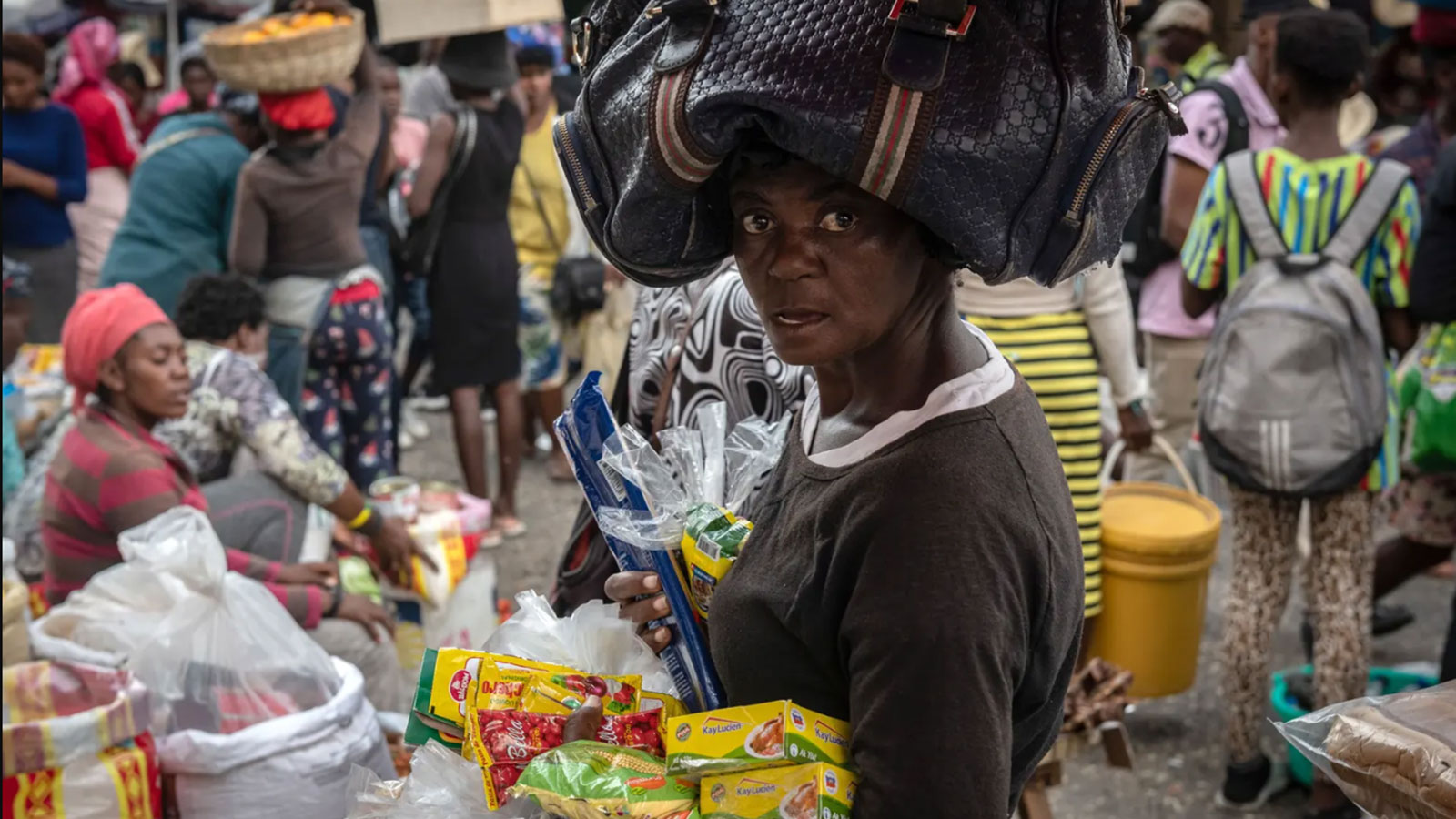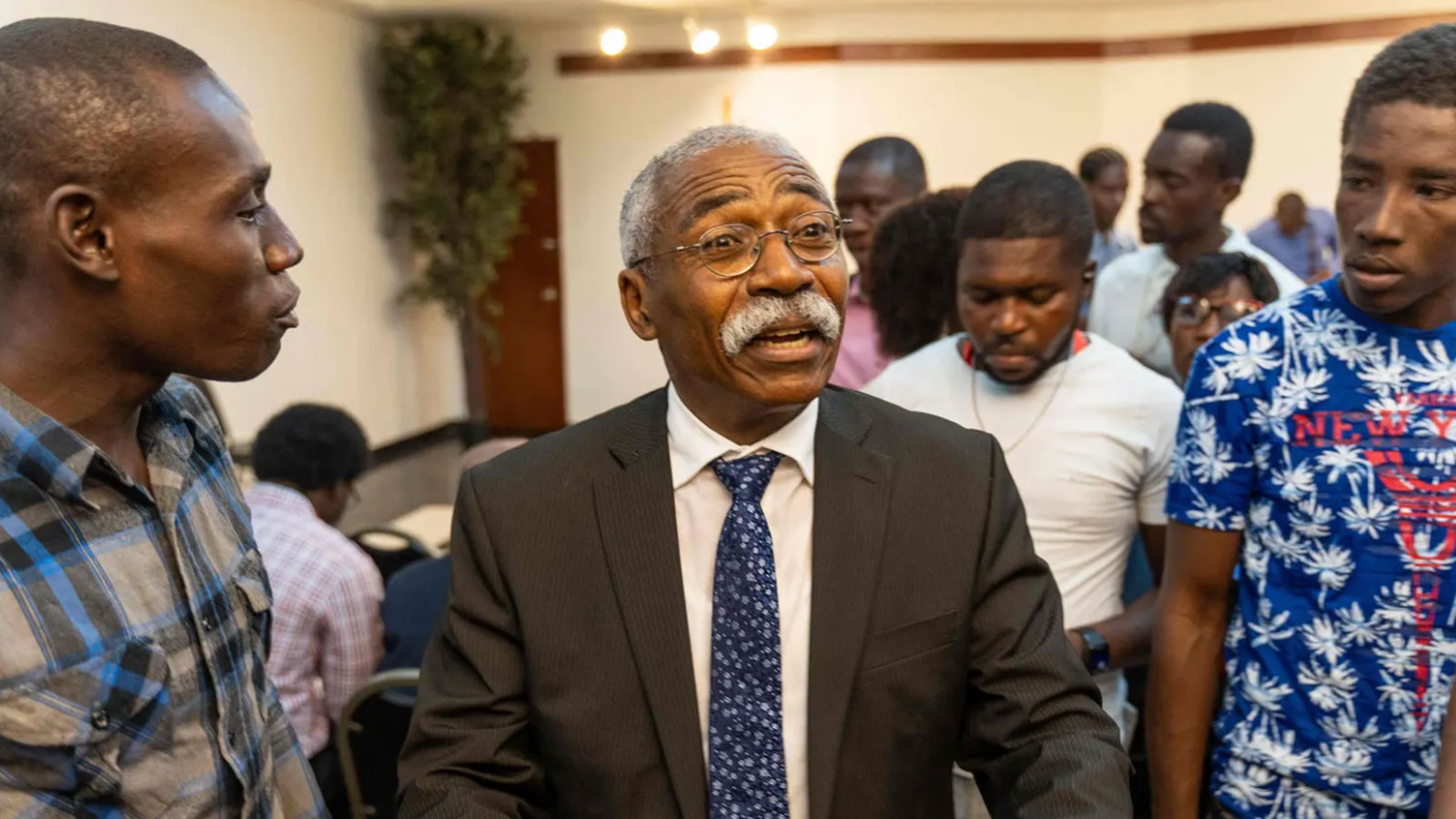Last 10 remaining senators leave office, with gangs controlling much of capital, a malnutrition crisis and a cholera outbreak.
By Luke Taylor, The Guardian —
The last 10 remaining senators in Haiti’s parliament have officially left office, leaving the country without a single democratically elected government official.
The expiration of the officials’ terms at midnight on Monday formally concluded their time in office – and with it, the last semblance of democratic order in the beleaguered Caribbean nation.
Haiti – which is currently engulfed in gang violence and the worst malnutrition crisis in decades – now officially has no functioning parliament as the senators were the last of 30 to remain in office after successive failed efforts to hold elections.
There is now no constitutional representation at any state level, the latest sign that the country has become a failed state.
“The constitution, which until now we have been referring to as the framework for political transition, is essentially just a letter, because none of the institutional architecture that it describes is currently in place,” said Renata Segura, deputy director for Latin America and the Caribbean at the International Crisis Group, a peacebuilding thinktank.
Haiti is plagued by a series of acute, overlapping crises as gangs violently exploit a power vacuum to expand their control of the capital.
Every democratic institution, from Haiti’s justice system to parliament, is no longer functioning.
All local authorities’ terms expired in 2020 and when the supreme court last met in February 2022, only five of the 12 judges remained in office.
The breakdown of Haitian democracy and its institutions has made it impossible to confront warring factions, who now control an estimated two-thirds of Port-au-Prince.
Home to 12 million, Haiti has not held timely legislative elections since October 2019 and was plunged further into uncertainty when its president, Jovenel Moïse, was assassinated in July 2021 by Colombian mercenaries in circumstances that remain unclear.
All local and national political mandates have now expired, while questions hang over the constitutional legitimacy of the interim government which has set no dates for the next round of elections.
Moïse had controversially extended his own mandate before he was assassinated and the succession of Ariel Henry – previously the prime minister – has never been ratified by law.
Henry is seen as illegitimate by most Haitians and his request in October for foreign military intervention was seen by critics as an effort to shore up a weak and unelected government.
“The entirety of the power right now is in the hands of the interim prime minister, who has been appointed in highly irregular circumstances and who is very illegitimate among great proportions of the Haitian population,” said Segura.

A street vendor looks on at a market in Port-au-Prince last week amid concern about the increase in food insecurity in the country. Photograph: Johnson Sabin/EPA
The explosion of gang violence engulfing Haiti has caused famine, forced hospitals to close and probably contributed to the re-emergence of cholera.
A record 4.7 million people are facing acute hunger with 1.8 million at a critical level of malnutrition, according to the World Food Programme (WFP).
In October 2022 the NGO for the first time raised its hunger alert in Haiti to level 5, the highest category often reserved for wartime famine.
Henry announced the formation of a council to oversee a transition of power on New Year’s Day, which could allow for fresh elections, but the initiative is widely regarded by observers as illegitimate.
Several leading opposition politicians have rejected the agreement and only three of the five-member transition council members have been appointed.
Opposition figures are not interested in a solution with Henry still in the frame, but Moïse’s successor shows no willingness to leave office.
“[Henry and his allies] say it’s a consensus but it’s really bogus. They’re going to try to have elections and we’re going to be right back at square one again because it’s going to be contested,” said Louis-Henri Mars, director of the Haitian peacebuilding non-profit Lakou Lapè.
At a summit in Mexico City on Tuesday Joe Biden was expected to lobby Justin Trudeau for Canada to lead an international security force – in part to help stem the flow of Haitian refugees reaching the US.
Activists in Haiti have warned that any foreign force would be the latest in a long history of miscalculated foreign intervention attempts in the Caribbean.
But a near-term political solution from within Haiti also looks unlikely.
The 10 senators whose terms expired on Monday met irregularly but had no power in practice as parliament was no longer convening.
Source: The Guardian
Featured image: Former senator Patrice Dumont speaks during a press conference at the end of his mandate on Monday in Port-au-Prince, Haiti. Photograph: Richard Pierrin/AFP/Getty Images















